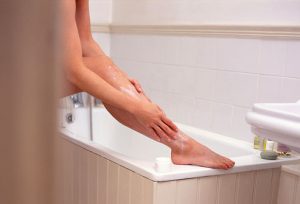While you can’t stop aging, you can slow it down in a way. The first step toward good health in your senior years is to eat right.
You have to feed your body good nutrition for it to run like it’s supposed to run. You have to have good maintenance. You have to start treating your body like you do your cars and your home. “Sometimes, you forget that your body is a well-oiled machine.”
Eating for Adults: As we age, our bodies change — not just in how they look, but also in how they work. It may take longer for you to digest meals. You may not drink enough water because you don’t feel as thirsty as you used to. Food may lose some of its taste, so you simply might not be interested in eating.
You might have a hard time chewing, you might just not feel like cooking, or you might be tired of eating by yourself. When these things keep you from eating well, your once well-oiled machine starts to sputter.
Talk with your doctor about any trouble you have as you try to eat a healthy diet. You may want to meet with a nutritionist, too. With a good health team, you can come up with a plan that helps get you back into eating well.
Keys to a Healthy Diet: You probably know the basics of a healthy diet — lots of fruits and vegetables, healthy proteins, whole grains, some low-fat dairy and healthy fats, and less salt. Some foods are especially helpful for older adults who want to eat healthier: Water: Not a food, you say? Think of it as one. As you get older, you may not drink enough water because you don’t feel as thirsty as you used to.
Water is so underappreciated. Our bodies are mostly water. If you’re chronically dehydrated, just think of what your cells look like, You can’t think as clearly, you get fatigued more easily, you don’t tolerate heat as well. People who complain of things like fatigue and mild headaches and constipation, most often they’re just dehydrated.
Berries: Always delicious, and packed with various antioxidants.” Antioxidants — things like vitamin C and vitamin E — can help keep your cells healthy. You can’t go wrong with any of the berries, usually, but blueberries really come packed with nutrients that are beneficial for the body.
Fiber: Dietary fiber — from things like vegetables, whole grains, fruits, and legumes — plays a key role in your digestive system. It can help prevent or ease constipation, as well as lower your cholesterol, blood pressure, and inflammation. That can lead to a healthier heart. Fiber also can help control blood sugar levels and lower your chances of diabetes.
Fatty fish: Heart-healthy all-stars like salmon, mackerel, and sardines are high in omega-3 fatty acids. They help prevent heart disease and stroke. Aim for at least two servings a week.
Olive oil: Cooking with this can help lower your “bad” cholesterol (LDL) and may even boost your good cholesterol (HDL).
Yogurt: Bone loss gets worse as you get older. Calcium helps keep it at bay, and yogurt is a good source of that. Get yogurt fortified with vitamin D, which helps you take in and use that key mineral. Yogurt also helps you digest your food, and it has protein, too. And it pairs really well with fruit.
Tomatoes: These and other foods high in lycopene, a natural chemical, can help protect you against prostate cancer and may help prevent lung cancer, too. Cooked or processed tomatoes (in juice, paste, and sauce) may be better at that than raw ones. Researchers believe that heating or mashing tomatoes releases more lycopene.
Red wine: Alcohol may help lower “bad” cholesterol, prevent blood clots, and ease your blood pressure. Go easy, of course. That usually means no more than one drink a day for women and two a day for men. If you don’t drink alcohol, though, don’t start.
Broccoli: Filled with all sorts of vitamins and antioxidants, broccoli is high in fiber, too. Nuts: Full of omega-3s, unsaturated fats (the good kind), fiber, and protein,
Nuts are heart-healthy nutrition in the palm of your hand. Shoot for five, 1-ounce servings per week. The following examples equal 1 ounce: 24 almonds 18 medium cashews 12 hazelnuts or filberts 8 medium Brazil nuts 12 macadamia nuts 35 peanuts 15 pecan halves 14 English walnut halves


